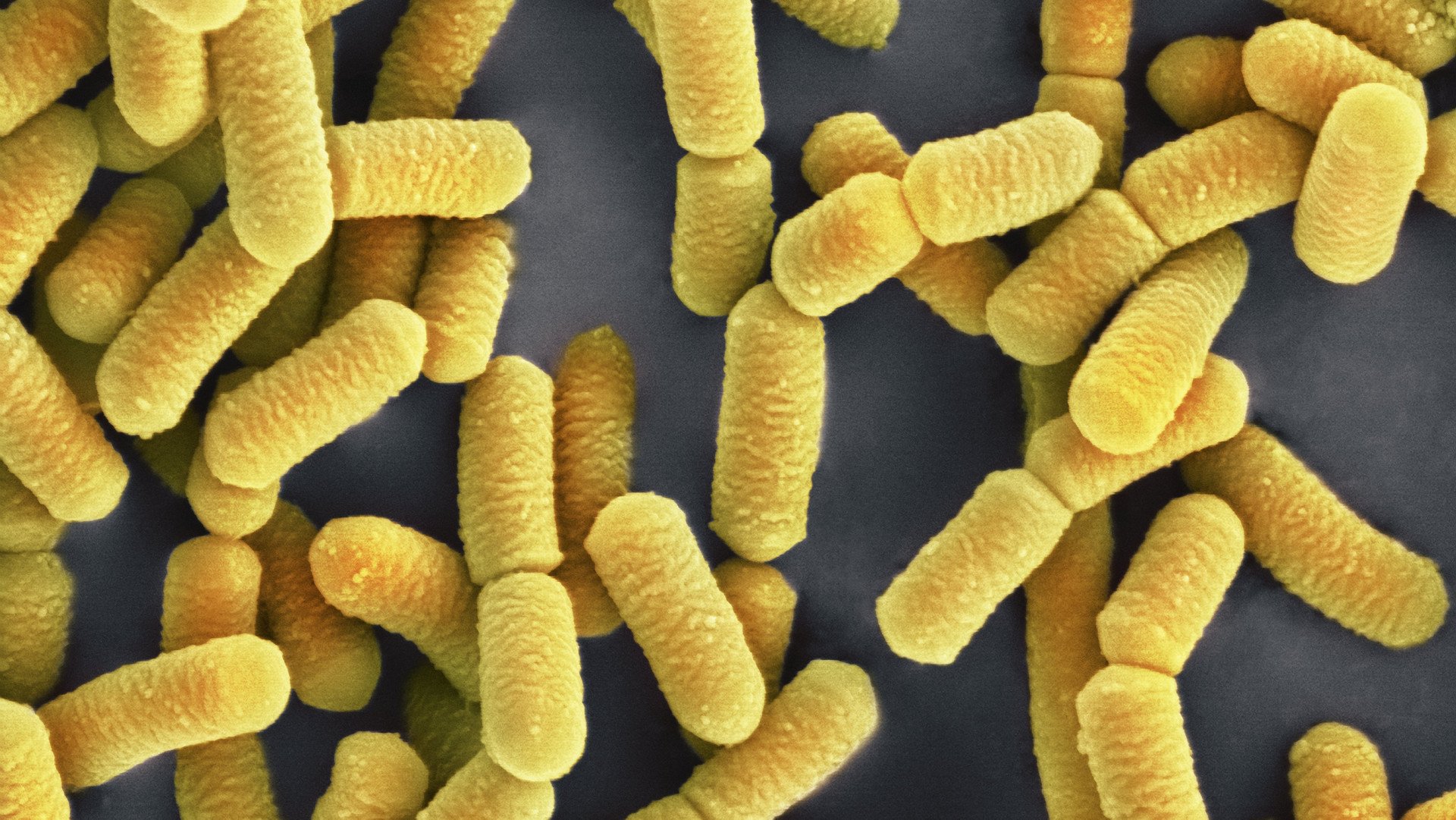The human body is chock full of microorganisms. These make up an ecosystem known as the human microbiome . The intestines are the undisputed capital city of your microbiome. They are home to 99% of the one hundred thousand billion microbes (ten times the number of cells that make up your own body) that live in and on all parts of your body. In the large intestine, there are up to 100 billion bacteria per millilitre. Gut microbes, collectively known as the gut microbiota, break down dietary fibre, train the immune system, produce hormones and vitamins, compete with pathogens and even influence our behaviour. The diversity of gut microbes is unique to each individual, and the greater the microbial richness in your intestines, the healthier you are.
A diet that includes red wine, chocolate, buttermilk or fruit increases the diversity of our gut microbes.
indispensable
Much still remains to be discovered about how our gut microbes affect our health. What is clear, however, is that the billions of bacteria, fungi, yeast and archaea involved are indispensable to the welfare of our body. So it’s not a bad idea for us to take care of these invisible helpers. Therefore, in 2011, Prof. Wijmenga decided to investigate the ways in which our gut microbiota influence our behaviour. The results were published yesterday, in Science.
poo
In their study, Prof. Wijmenga’s research team used data from the northern Netherlands’ LifeLines study, in which 156,000 people were followed for a period of 30 years. Health data on weight, height, blood (including blood pressure) and urine, as well as data on dietary habits, medication use and exercise patterns were combined with information on the diversity of the gut microbiota. During the study, a total of 1200 subjects gave poo samples. The researchers then used a DNA-based approach, involving ‘next-generation’ sequencing methods, to determine the bacterial diversity of this poo. This gives a reliable impression of diversity in the intestines.
remarkable
The researchers found that the poo contained as many as 632 bacterial species from 220 genera. The diversity of the 1200 organisms that make up the gut microbiota was linked to 150 different factors. This produced some remarkable results. The consumption of red wine, chocolate, coffee, tea, fruit and buttermilk was found to be associated with gut microbes that were more diverse and, therefore, more healthy. Whole milk, soft drinks, snacks and beer, on the other hand, have the opposite effect. The same applies to medications such as proton pump inhibitors, statins, laxatives and natural antibiotics . Physical characteristics such as age, gender, BMI, blood counts, heart attack, kidney stones and food allergies also have an effect.
many questions remain
In an interview with the Netherlands Broadcasting Corporation (NOS), Prof. Wijmenga referred to it as the largest ever study of the human microbiome. Prof. Wijmenga explains that “Ours was a very systematic investigation, something that has never been done before. Previous studies always tended to focus on smaller groups and on just a couple of factors.” Despite the scale of this investigation, there are still many questions. For instance, the 150 factors examined account for just 20% of the variation, and it is not always easy to distinguish between cause and effect. For this reason, Prof. Wijmenga sees this study as a first step.
Source: Science
